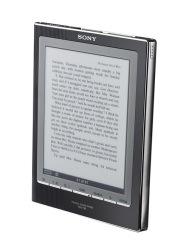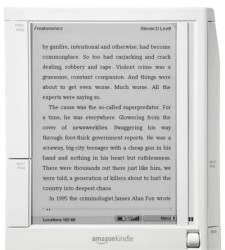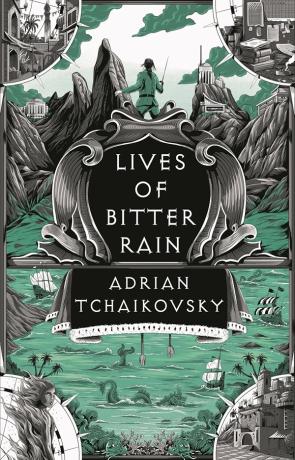Will Ebook Readers threaten the traditional book?
With the fairly recent launch of Amazons Kindle and the imminent arival of Sony's Third Generation PRS-700, there are some big players backing the e-book market so is time to be concerned about the future of the traditional book format?
There are quite a number of e-book readers on the market today, but the big two that stand out have to be Sony's and Amazon's.

Lets start with Sony's offering, the new
Sony PRS-700, which is due for launch soon will be a 6 inch touch screen based device with the ability to annote documents via the use of a stylus and an on screen keyboard using the existing e-ink technology but attempting to overcome the issue of pooor display in low light conditions by the addition of intergrated LED lighting around the edge of the screen. The standard model will be able to store up to 350 books in its onboard memory with flash card memory slots for additional storage.
The software has been upgraded, e-book library 2.5 has been designed to make it easy to read PDF, MS Word and other formats but is still going to come bundled with Sony's BBeB package to purchase books from their online store, which has around 50000 ebooks in stock.

Amazon's Kindle e-book reader uses a different technology that provides a remarkably clear and sharp display. In addition the Kindle has Wifi connectivity meaning you can download e-books from any wifi enabled device. It has a hardware QWERTY keyboard an the bottom of the reader, select wheel and next/prev/back buttons with an LCD side scroller.
The Kindle can hold over 200 e-books in its onboard memory with an SD memory card slot for extra storage. Amazon's e-book store has around 180000 e-books with very competative pricing.
Ok so are we wanting one yet?, well these reviewed are american versions however if you are in the UK, you will be hard pressed to find them yet. When I find a UK release Date for either I will let you know.
The Pros
- Storage, you can carry hundreds of books around with you all at the same time!
- Environment, No paper, less environmental impact.
- Editable, you can use the reader to store your own documents and edit them.
Cons
- Expense, the readers in america can cost $400 upwards.
- DRM restricted?, with any electronic media there are DRM laws so in theory it would be questionable if you could store any copies anywhere else, meaning if your reader breaks you have lost all your books!
- Readability, no matter how good electronic paper gets it will never replace the tactile quality of the printed paper and the paper novel.
My Conclusions
There is a definite convienience factor of carrying around potentially hundreds of books I can't deny that the lure is there, however in my opinion you will never be able to replicate the experience of reading a real book. The tactile sensations, the real experience of sitting and reading a physical book and having them displayed on your shelf to me is all part of the experience, no matter how much I enjoy technology, there will never be a replacement to the pleasure of buying a book, taking it home and reading it.
News Archives
- August 2024
- July 2023
- April 2023
- February 2023
- September 2022
- March 2022
- February 2022
- July 2021
- June 2021
- April 2021
- March 2021
- January 2021
- October 2020
- September 2020
- June 2020
- March 2020
- May 2019
- January 2019
- November 2018
- January 2016
- September 2015
- August 2015
- July 2015
- June 2015
- May 2015
- April 2015
- March 2015
- January 2015
- October 2014
- June 2014
- April 2014
- March 2014
- February 2014
- January 2014
- December 2013
- November 2013
- October 2013
- September 2013
- June 2013
- May 2013
- April 2013
- March 2013
- January 2013
- December 2012
- November 2012
- August 2012
- July 2012
- June 2012
- May 2012
- April 2012
- March 2012
- February 2012
- January 2012
- December 2011
- November 2011
- October 2011
- September 2011
- August 2011
- July 2011
- June 2011
- May 2011
- April 2011
- March 2011
- February 2011
- January 2011
- December 2010
- November 2010
- October 2010
- September 2010
- August 2010
- July 2010
- June 2010
- May 2010
- April 2010
- March 2010
- February 2010
- January 2010
- December 2009
- November 2009
- October 2009
- September 2009
- August 2009
- July 2009
- June 2009
- May 2009
- April 2009
- March 2009
- February 2009
- January 2009
- December 2008
- November 2008
- October 2008
- September 2008
